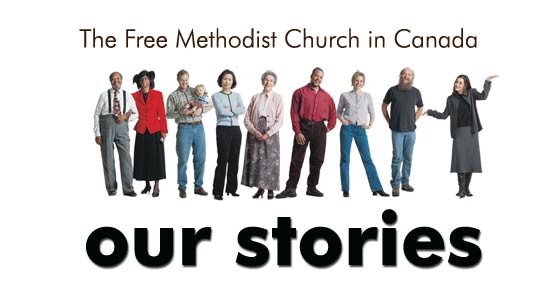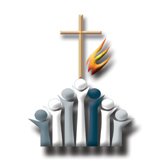Friday, October 24, 2008
Values Exercise - what are we reflecting?
As I studied the ‘frees’, I began to think of them as principles, standards or ideals: in other words, values. We all have values, the things or people in our lives that we regard as important, as useful and as having worth. These five ‘frees’, these values, became part of who we were as Free Methodists. They were part of our identity. That brought me to a question: Is that true of us today?
I have worked through a values activity with high school students, most recently in September. Each student was presented with 52 cards. Each card had a word on it that represented something good worth valuing: competence, honesty, integrity, leisure, athletics, cooperation, family, relationship with God – with Scriptural support. They had to do a quick sort of the 52 cards into 3 categories: Very important to me, Somewhat important to me and Not Important to Me at All. The only other stipulation was there could only be eight cards in their ‘very important to me’ pile. When they finished that – and for most it was not an easy task – they had to take those top eight and rank them from most to least important.
That in itself is an interesting activity. I’ve done it and it’s not easy. As I picked my top 8, I realized how some of mine were very different from a typical high school student simply because I was at a very different stage in time. Our season of life can affect what we value.
That brings me to my question. Are the five values still true for us or has that changed because of our season(s) of life? That query is followed by another one: How would we know?
I asked the high school group the same question. Together we agreed that in order for us to truly value something, there needs to be evidence of it in our lives. It has to be reflected in our behaviour. If I say I value physical fitness yet eat a high-fat, high-salt diet and never exercise, then it’s not a value. If I say I value risk-taking and never take a chance on anything, then it’s not a value. A look at our behaviour will reveal what it is that we value and two really good indicators are how we spend our time and where we spend our money. We spent some time as a group seeing if we could identify people by using the lists of eight values, based on how well we knew their behaviours. That was an interesting activity as well!
As I look at our five values, I’m impressed by two in particular as they relate to us as Christ-followers and as leaders. The first is we can be ‘free from the domination of sin’ through the renewing activity of the Holy Spirit and the faithful adherence to spiritual disciplines. As I connect this value to behaviours, then disciplines such as prayer, fasting, meditation on Scripture and Sabbath rest should be evident in our walk. I don’t know if the original Free Methodists observed Sabbath rest as a spiritual discipline, but God has expressed His opinion on it, as a commandment(Exodus 20: 8-11). Observing a regular time for rest and worship demonstrates how much we value God and allows us to be refreshed in body and spirit. God makes provision for our spiritual and physical health in His word, and also provides protection for us; protection against exhaustion, nasty attitudes, illness or burnout. It’s there for us to put into action in our lives, for in His protection and provision there is freedom for us.
The second value is that we can be free from secret societies so that our loyalty isn’t divided. As I connect that value to behaviour, I see that displayed as openness, honesty and transparency so that it’s evident where our loyalties are. No masks. There is freedom to be who we are created to be in Christ; fear of failure or fear of rejection no longer need to guide our choices or behaviours. We can let down our masks and discover that people will still love us – they might even still like us! One way that we demonstrate that value is by having an accountability partner who will ask the important and perhaps tough questions, encourage us and be willing to hold our feet to the fire as needed. In mutual accountability, we also need to be ready to ask the important questions and if we’re holding someone’s feet to the fire, be prepared to get warm hands! To learn to drop the mask is to learn to value transparency and to experience freedom in being who God created us to be: healthy, whole people designed in His image.
As Christ-followers and leaders we can claim these two ideals to be true values for us by living them out. That answers my second question of ‘how would we know?’ We know because our lives bear the fruit of those values for all to see. As for my first question, whether these values reflect a season of life…I don’t believe they do. I do believe that for healthy churches and healthy leaders, they should be our lifestyle - in or out of season!
Rev. Kim Henderson is Director of Leadership Development for The Free Methodist Church in Canada.
Wednesday, March 12, 2008
Training leaders in Cambodia
Last November, 33 pastors and Christian leaders attended a two week training module at Tahas Bible Institute (TBI), an interdenominational college led by Canadian FM missionary, Rev. Sok Em. Most of the participants are lay leaders in village churches. They came from five different denominations and travelled from five provinces in Cambodia to Kampong Chnang, where TBI is located.
Although almost 50 people had registered for the module, some leaders were not able to attend for a variety of reasons, the most common being a lack of financial resources. The college only charges the equivalent of $5.00 USD for food and study materials for the two-week program.
This amount, however, is equal to four days of labour for farmers. Plus, students would have to pay $5 to $10 for their travel costs.
If you would like to receive the Ems newsletter please contact them at: tbibleinstitute@gmail.com
Missional Living in Niamey, Niger
This little episode gives a glimpse into the cultural context of ministry in Niamey, Niger where the Wrights are settling into their church planting assignment. Although most Nigeriens would claim to be Muslims, this kind of ‘folk Islam’ as practiced by my ‘medicine man’ would be more typical of many in Niger. In this setting, where there are very few Christians, the work that David and Jennifer and their boys have to do, is really to just begin developing friendships with their neighbours.
In this city of almost 1 million people, the Wrights have moved into a newly developing neighbourhood near the north edge of the city. In Niamey there are few Christian churches and most have 40-60 people that worship together. There are no gatherings of Christians in the district (quartier) of the city where the Wrights live. During my time with the Wrights in December, we discussed the challenges of ‘starting from scratch’ to develop a gathering of new Jesus-followers.
In a recent posting on their blog [www.niameywrights.blogspot.com], Jennifer wrote: "One of the things that came out of that discussion falls under the acronym BELLS, which stands for Blessing, Eating, Listening, Learning and Sending. This is part of our weekly tasks, so for the "blessing" we are to find a way to bless one person within the church and one that is outside of the church each week; "eating" is similar, we are to eat a meal with a believer and a non-believer. With "listening" we are to spend a solid hour of time each week in listening/meditative prayer where the goal is to hear from God. "Learning" refers to an hour a week where you study God’s word with a small group or in a discipling relationship.
"Sending" isn’t quite what it sounds, but refers to the fact that when God sends us to do His work, He not only prepares us, but He goes before us. So by "sending", we are to spend time journal writing each day in order to record where we have been seeing God at work. All of these become interrelated, so that our blessing, eating and learning are all directed by what we see God doing and what we are hearing him say to us. So you can be praying for us as we start to try to put some of these new disciplines in place in our lives and maybe you could try to put these disciplines in place in your lives and ministries too!"

